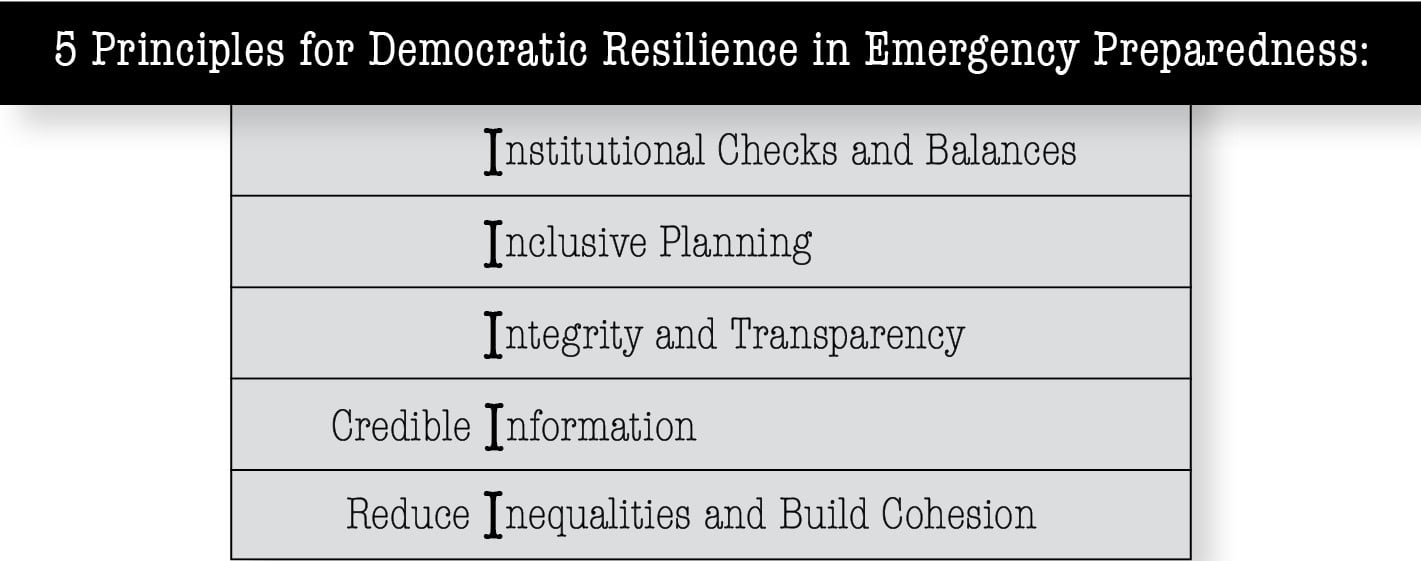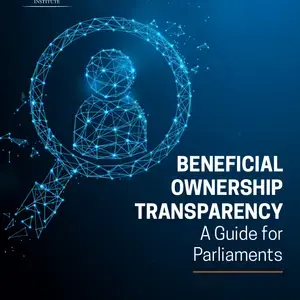From COVID to climate to quakes, crises have become the new normal. Around the world, governments are grappling with simultaneous emergencies and the situation is only going to get worse. Experts predict that children born this year will experience a sevenfold increase in extreme weather events compared to their grandparents. Addressing the United Nations General Assembly last month, Secretary General Antonio Guterres sounded the alarm, asserting that “the world is at the edge of the abyss and moving in the wrong direction.”
We do not know when or how the COVID pandemic ends, but there are abundant lessons from the last 18 months that merit close attention by policy makers. While the public health and economic impacts have been devastating, the governance arena may be where the effects are the most complex and the longest lasting. Overall, there is little doubt that the pandemic has been a solid net negative for democratic institutions and norms. According to one report, 95 countries implemented pandemic response measures that involved moderate or major violations to democratic norms, accelerating a decade-long trend toward increasing autocratization.
In some cases, the hits to democratic governance were the result of power grabs from authoritarian opportunists. In other instances, elected leaders were simply caught on their backfoot, lacking the necessary authority or systems that would enable them to respond rapidly, effectively and democratically to the crisis conditions. The humanitarian principles of humanity, neutrality, impartiality, and independence are well-established and the 2015 Sendai Framework sets out important outcomes with a focus on prevention, preparedness and resilience. However, the recent COVID experience indicates that these sacrosanct humanitarian concepts may now be insufficient to meet the complex challenges at hand.
Autocratic expansion under COVID teaches us that democratic leaders ignore the disaster-democracy nexus at their peril. Concretely, crisis management that fails to ground strategies in an understanding of democratic dynamics and vulnerabilities risks undermining the very institutions and norms that are essential for sustainable recovery and development in the long-term.
The National Democratic Institute has advocated for building back democratically as the only pathway to a sustainable pandemic recovery. Given the profound impacts on democratic development combined with the projected increase in disaster frequency and severity, democratic preparedness for future crises is equally imperative. Five core democratic resilience principles that policymakers should build into preparedness for future shocks are: institutional checks and balances; inclusion; integrity; credible information; and reducing inequalities and building cohesion.
-
Institutional checks and balances: Uphold separation of powers, with particular emphasis on the role of parliaments in decision making and oversight; design legal frameworks for emergency measures consistent with international human rights law; develop parliamentary infrastructure and operations, including technologies and rules of procedure that allow for continuous, nimble, and inclusive responses in emergency contexts;
-
Inclusion: Address demographic data gaps to include comprehensive information on the whole population; create emergency-appropriate inclusive data collection methods; and proactively build relationships and engage in preparedness planning with civil society organizations representing women and other marginalized groups;
-
Integrity: Build adaptive transparency and audit procedures into emergency procurement procedures and fiscal management; maintain communications and legislative business between and among members across parties to ensure effective oversight of the executive in emergency contexts;
-
Credible information: Develop two-way inclusive crisis communications systems that inform citizens, provide clear instructions and build public trust; study and prepare for an effective rapid response to mis/disinformation campaigns;
-
Reducing inequalities and building cohesion: Drawing on the inclusive data collection mentioned above, develop responses that take into account existing social fractures, commit to ‘do no harm’ and contribute to defusing tensions and reducing disparities.
Looking Ahead:
The pandemic has strained governance systems around the world. As the intensity and frequency of crises are only expected to increase in future years, enhanced understanding of the disaster-democracy nexus is critical. The response to future emergencies can address both humanitarian and democratic governance needs, if it is done right and through inclusive dialogue. The disaster risk reduction community should put special emphasis on examining and learning from the negative impacts of ad hoc response measures on democratic governance. At the same time, the democracy community should engage in disaster preparedness strategic planning that identifies and shores up democratic vulnerabilities. Effective democratic governance is the key to addressing the root causes and effects of these spiraling emergency contexts, if only it can survive them.
-Kristen Sample, Director of Democratic Governance, National Democratic Institute





